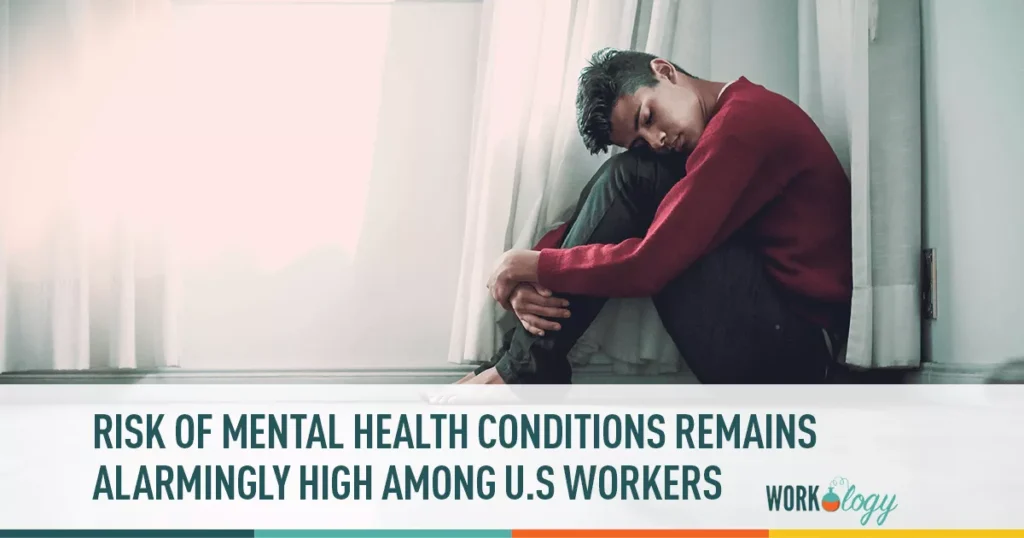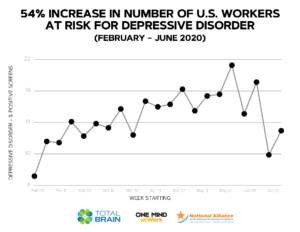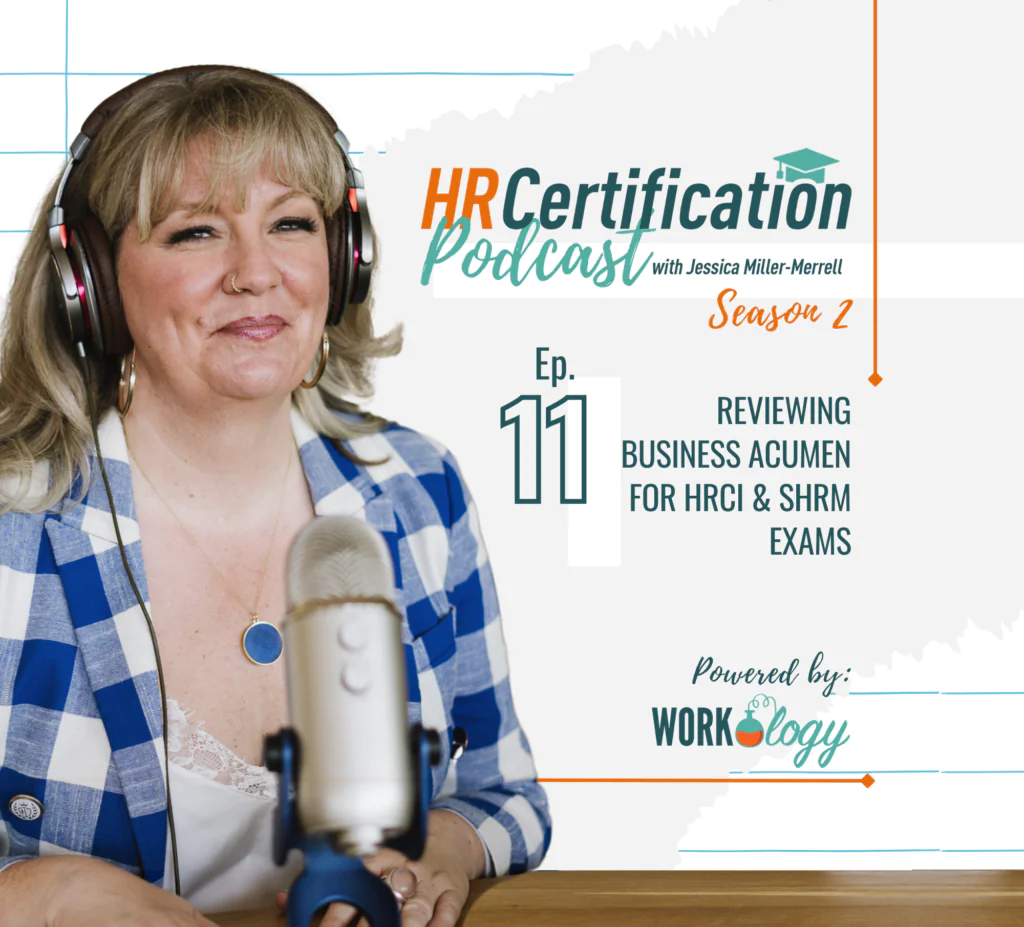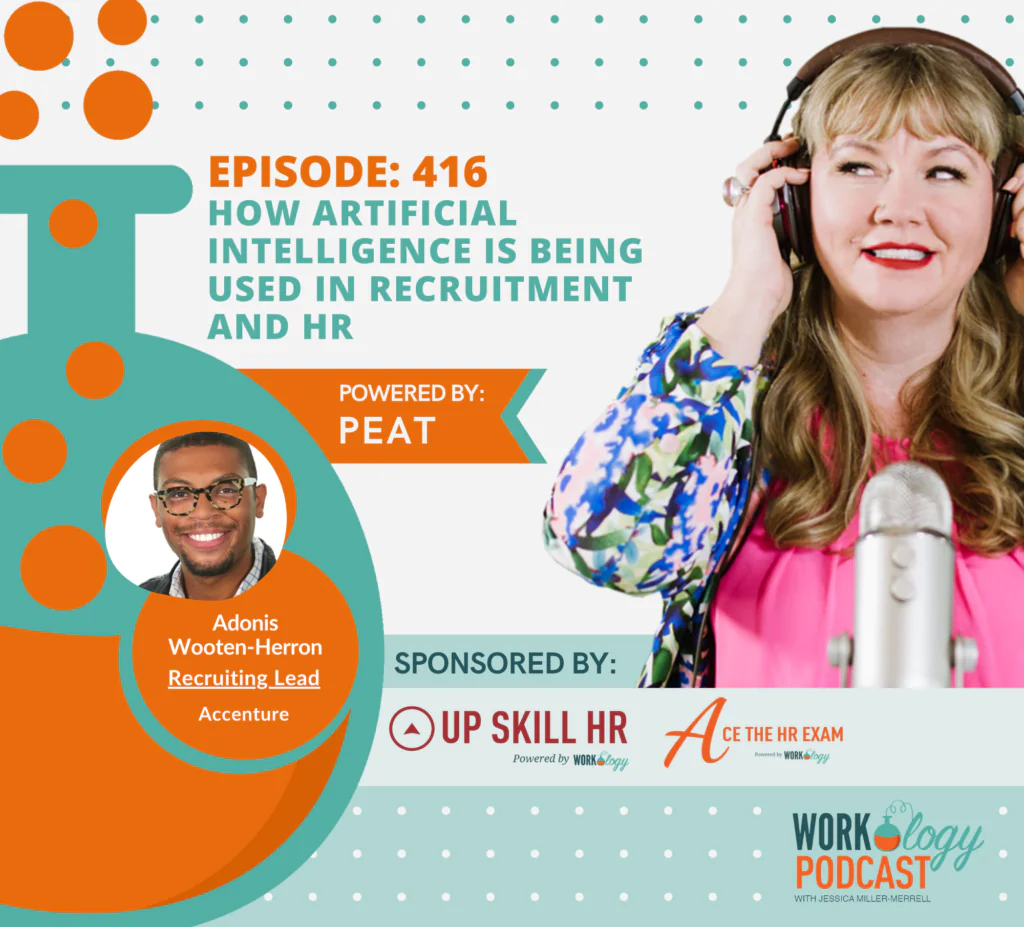A series of grim milestones in the struggle to contain the coronavirus pandemic is sweeping the nation. The U.S. has topped 4 million confirmed cases of the virus and 150,000 deaths loom on the horizon. A COVID-19 resurgence across a widening geographic area is wiping out months of progress. And no one can tell us what is ahead and when this nightmare will end.
Risk of Mental Health Conditions Remains Alarmingly High Among U.S Workers
Americans are living under extraordinary sustained mental and emotional strain. An assessment of U.S. worker’s emotional and cognitive capacities indicates that employees are beginning to normalize this unprecedented crisis and settle into a state of heightened stress and anxiety. The shock is wearing off. The headlines are becoming as routine as washing our hands. We can see this in the data.
As the weather improved, schools let out and the economy began to reopen between May and June the number of
people at risk of depression dropped 36%; and those at risk of general anxiety disorder declined 26%. Stress levels also
fell 11%.
Nevertheless, the mental health of U.S. workers is far from usual. A rise in the number at risk for mental health conditions remains alarmingly high when compared to the time before the words pandemic, social distance and face mask were interjected into nearly every conversation.
According to the Mental Health Index: U.S. Worker Edition, the number of working Americans at risk of depressive disorder has increased 54% in June when compared to pre-pandemic days in February. The number at risk for PTSD is up 49%; general anxiety disorder is up 41%; and addiction is up 11%. And stress levels are 14% higher than before we were donning masks and speaking through plexiglass. The Mental Health Index is created by Total Brain and distributed in partnership with nonprofits One Mind at Work, and the National Alliance of Health Care Purchaser Coalitions.
We are also discovering that while no one is exempt from stress and anxiety, not all age groups are responding to the current state of our world to the same degree. Our nation’s youngest workers, Generations X and Y are among the most emotionally impacted by far. As of the last week of June:
- The stress level of 20-39-year-old workers was 94% greater than colleagues age 60+; and 19% greater than those ages 40-49.
- The number of 20-39-year-old workers at risk for general anxiety disorder is 248% higher than workers age 60+; and 188% higher than colleagues ages 40-59.
Data is culled from clinically valid assessments using standardized, scientifically based digital tasks and questions. It is not a survey or a poll. The Mental Health Index gives business leaders and HR policy advocates a unique lens to examine the state of mental health among U.S. workers.
The numbers do not lie. There is a mental health crisis in our country and the data supports our case for increased attention on employee mental health among business leaders. Insights from the Mental Health Index are intended to motivate the business community to continue efforts to help employees and their families cope with the strains of an insidious virus today, but also the emotional fallout that will linger tomorrow.
Companies are grappling with so much right now including physical workspace safety issues, supply chain interruptions and declining sales. It could be so easy to put mental health on the back burner. But don’t. Businesses that can make the mental health of their workers a top priority will reap the many benefits of a productive, focused, happy and loyal workforce.










